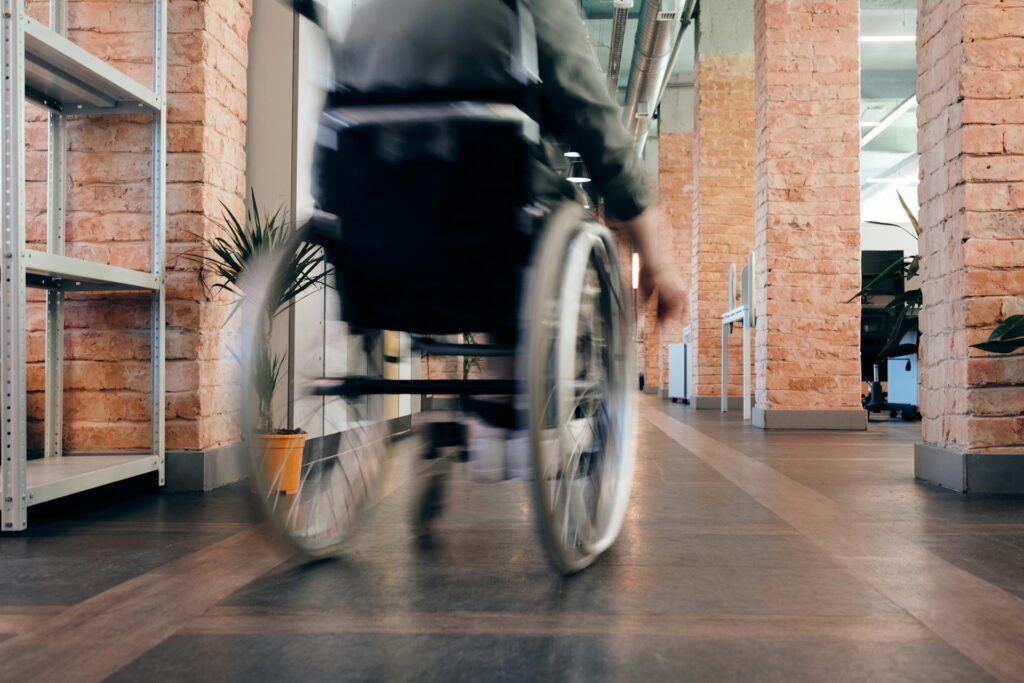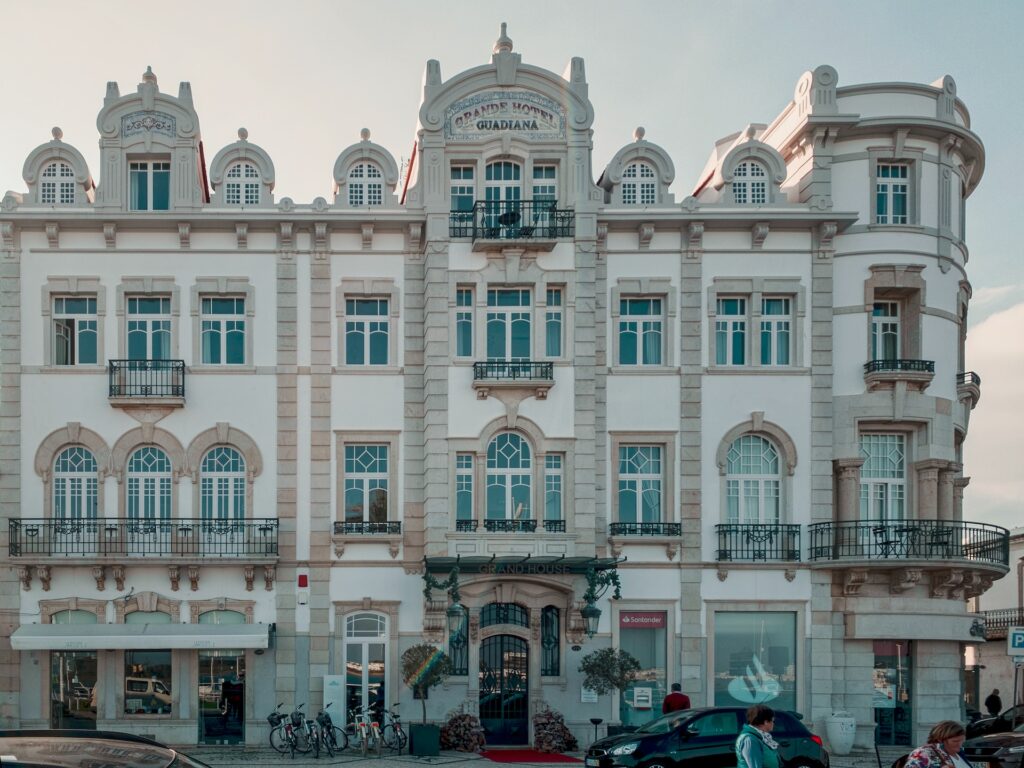Portugal has made significant strides in recent years to improve accessibility for individuals with reduced mobility and wheelchair users. The country is committed to creating an inclusive environment, ensuring that public transportation, accommodations, tourist attractions, and public buildings are accessible to everyone. Here’s an overview of the current state of accessibility in Portugal:
Overview of Accessibility in Portugal
Public Transportation
Buses: Most buses in major cities like Lisbon and Porto are equipped with ramps and designated spaces for wheelchair users. Drivers are trained to assist passengers with disabilities.
Subways: The Lisbon and Porto subway systems have been upgraded to include elevators, ramps, and accessible ticket machines, making it easier for individuals with reduced mobility to navigate the city.
Trams: While many of the traditional trams in Lisbon are not fully accessible due to their historic design, modern trams and light rail systems have been introduced with accessibility features.
Airports
Major airports, including Lisbon, Porto, and Faro, offer comprehensive services for passengers with reduced mobility. This includes priority boarding, dedicated assistance teams, and accessible facilities throughout the airport.
Accommodations
Many hotels and vacation rentals in Portugal are now designed with accessibility in mind. Features such as wheelchair-accessible rooms, roll-in showers, and elevators are commonly available. Some hotels even offer additional services like mobility equipment rental.
Tourist Attractions
Museums, historical sites, and other tourist attractions have been working towards improving their accessibility. Many now offer ramps, elevators, and accessible restrooms. Notable attractions, such as the Jerónimos Monastery in Lisbon and the Livraria Lello in Porto, have made significant efforts to accommodate all visitors.
Public Buildings
Government offices, healthcare facilities, and educational institutions are required to comply with accessibility standards. These buildings typically feature ramps, elevators, and accessible restrooms to ensure they are usable by all members of the community.

Legal Framework for Accessibility in Portugal
Portugal has established a comprehensive legal framework to ensure accessibility for individuals with reduced mobility and wheelchair users. These laws and regulations are designed to promote an inclusive society and protect the rights of people with disabilities. Here’s an overview of the key aspects of Portugal’s legal framework for accessibility:
Constitutional Rights:
The Portuguese Constitution guarantees equal rights and non-discrimination for all citizens, including those with disabilities. It emphasizes the state’s responsibility to implement measures that promote the integration and participation of individuals with disabilities in society.
Law No. 38/2004:
This law, also known as the “General Law on the Rights of Persons with Disabilities,” outlines the rights of individuals with disabilities in Portugal. It covers areas such as accessibility, education, employment, and social inclusion. The law mandates that public and private entities take necessary measures to ensure accessibility and equal opportunities.
Decree-Law No. 163/2006:
This decree establishes the technical standards for the accessibility of buildings and facilities. It includes detailed requirements for ramps, elevators, accessible restrooms, signage, and other architectural features to ensure that public and private buildings are accessible to individuals with reduced mobility.
Decree-Law No. 58/2004:
This decree focuses on accessibility in public transportation. It requires that all forms of public transportation, including buses, subways, trams, and trains, be equipped to accommodate passengers with disabilities. This includes the provision of ramps, priority seating, and assistance services.
National Strategy for Disability 2021-2030:
This strategy outlines the government’s long-term goals and actions to promote the rights and inclusion of individuals with disabilities. It emphasizes the importance of accessibility in various sectors, including education, employment, health, and public services. The strategy aims to create a more inclusive society through coordinated efforts and policies.
Best Accessible & Wheelchair-Friendly Beaches in Portugal
Portugal is renowned for its beautiful coastline, and the country has made significant efforts to ensure that its beaches are accessible to everyone, including those with reduced mobility and wheelchair users. Here are some of the best accessible and wheelchair-friendly beaches in Portugal:
- Praia de Carcavelos (Lisbon Coast)
- Praia da Rocha (Algarve)
- Praia de Mira (Central Portugal)
- Praia da Vila de Milfontes (Alentejo)
- Praia de Monte Gordo (Algarve)
- Praia de São Rafael (Algarve)
- Praia da Nazaré (Central Portugal)
- Praia da Comporta (Alentejo)
- Praia de Alvor (Algarve)
- Praia de Matosinhos (Porto Area)

Flattest and Most Wheelchair Accessible Places in Portugal
Portugal has several towns and cities that are flat and wheelchair-friendly, making them ideal for travelers with reduced mobility. Here are some of the best accessible destinations in various regions of Portugal:
Espinho (Silver Coast)
Espinho is a coastal town known for its long sandy beach, boardwalks, and the Espinho Casino. The town’s flat terrain and accessible beachfront make it a pleasant destination.
Vila Real De Santo António (Algarve)
This town near the Spanish border offers flat streets, a charming marina, and easy access to the Guadiana River. The town center is laid out in a grid pattern, making navigation straightforward.
Tavira (Algarve)
Tavira is known for its beautiful architecture, Roman bridge, and serene atmosphere. The town has made significant efforts to improve accessibility.
Setúbal (Near Lisbon)
Setúbal is a coastal city with a bustling port, beautiful beaches, and the nearby Arrábida Natural Park. The city center and waterfront areas are relatively flat.
Praia da Rocha (Algarve)
This popular beach destination features a long promenade with shops, restaurants, and stunning coastal views. The beach itself is known for its accessibility.
Monte Gordo (Algarve)
Monte Gordo offers a wide, flat beach and a promenade lined with cafes and restaurants. The beach and town are both very accessible.
Costa da Caparica (Near Lisbon)
This beach town near Lisbon is famous for its long sandy beaches and relaxed atmosphere. The beachfront area is particularly flat and accessible.
Reguengos de Monsaraz (Alentejo)
Known for its wine production and historic sites, Reguengos de Monsaraz offers a picturesque and relatively flat landscape. The nearby Monsaraz village provides stunning views and accessible pathways.
São Brás de Alportel (Algarve)
This inland town is known for its traditional Algarve charm, cork industry, and cultural heritage. The town is mostly flat and easy to navigate.

How to move to Portugal?
EU Citizen
For EU Citizens planning to reside in Portugal for more than three months, the process is straightforward. You’ll need to apply for a Registration Certificate (Certificado de Registo de Cidadão da União Europeia, CRUE) at the city hall of your residence area, with a fee of €15. This certificate is valid for up to five years and requires renewal thereafter.
Non-EU Citizen
Non-EU nationals intending to live in Portugal must apply for a Portuguese residency visa prior to arrival. Upon entry, obtaining a residence permit is necessary. There are multiple pathways for non-EU citizens to secure residency in Portugal:
D7 Visa Portugal
Portugal D7 Visa, which is perfect for retirees or those with passive income. This visa requires proof of regular income or savings, and the ability to support yourself without working in Portugal. It’s a great option for those looking to enjoy the country’s relaxed lifestyle and stunning natural beauty.
Digital Nomad Visa
Digital Nomad Visa Portugal, or D8 Visa, for remote workers and freelancers allow them to live and work in the country for up to a year, enjoying all the benefits of the Portuguese lifestyle while earning an income from their remote job or business.
Portugal D2 Visa
D2 Visa Portugal in case you are an entrepreneur looking to start or develop a business in Portugal, which allows you to obtain a residence permit for up to two years.
Portugal Golden Visa
The Portugal Golden Visa program in Portugal, also known as the Residence Permit by Investment Program, is an investment immigration program that grants residency and citizenship rights to foreign investors who make a significant economic contribution to the country.
Why to work with us
Local Expertise
We know Portugal. Due to our extensive local knowledge, we believe that concentrating our services in a single country destination is the best way to give you the most thorough and useful information.
Holistic Approach
One single channel of communication for the entire process. We provide you with a comprehensive service that covers all aspects of your move, from identifying the ideal residency visa to finding your new home or helping you to settle.
Transparent Service
We recommend what’s best for you based on an extensive process experience that saves time and money to clients. Our pricing is clear and competitive, and we don’t sell services that make us more money.
Simple Process
Technology plays a very important role in our company. We minimize our clients’ involvement in paperwork. We are customers ourselves and we know how to serve you.
Frequently Asked Questions About Reduced Mobility and Wheelchair Access
How can I get around in Portugal if I use a wheelchair?
In addition to accessible public transportation, there are taxi services and ride-sharing options that accommodate wheelchairs. Many cities also have accessible sidewalks and pathways, making it easier to navigate urban areas.
Can people in wheelchairs go to the beach?
Yes, people in wheelchairs can visit many beaches in Portugal. Several beaches have facilities like ramps and beach wheelchairs (amphibious wheelchairs) designed for accessibility on sand and in water.
Is Portugal wheelchair accessible?
Portugal has made significant efforts to improve accessibility in major cities and tourist areas. Many public transportation systems, accommodations, and attractions are accessible, though levels of accessibility may vary.
Is the Algarve wheelchair friendly?
The Algarve region in Portugal has made strides in improving accessibility. Many towns and beaches offer facilities such as ramps and accessible restrooms. Popular destinations like Faro, Lagos, and Albufeira have accessible options.
Is it easy to rent mobility equipment in Portugal?
Yes, mobility equipment such as wheelchairs, scooters, and walkers can be rented from various companies throughout Portugal. Many hotels and accommodations can also assist with arranging rentals.
Can a paralyzed person go to the beach?
Yes, paralyzed individuals can enjoy the beach with the help of beach wheelchairs or other specialized mobility aids designed for sand and water accessibility.
How does Portugal support people with disabilities?
Portugal has established laws and regulations to protect the rights of people with disabilities. Efforts include improving accessibility in public spaces, transportation, and promoting inclusion in employment opportunities.
Can you rent wheelchairs in Portugal?
Yes, wheelchairs and other mobility aids are available for rent at various locations across Portugal, including airports, tourist centers, and medical supply stores. It’s advisable to check availability and make arrangements in advance.




